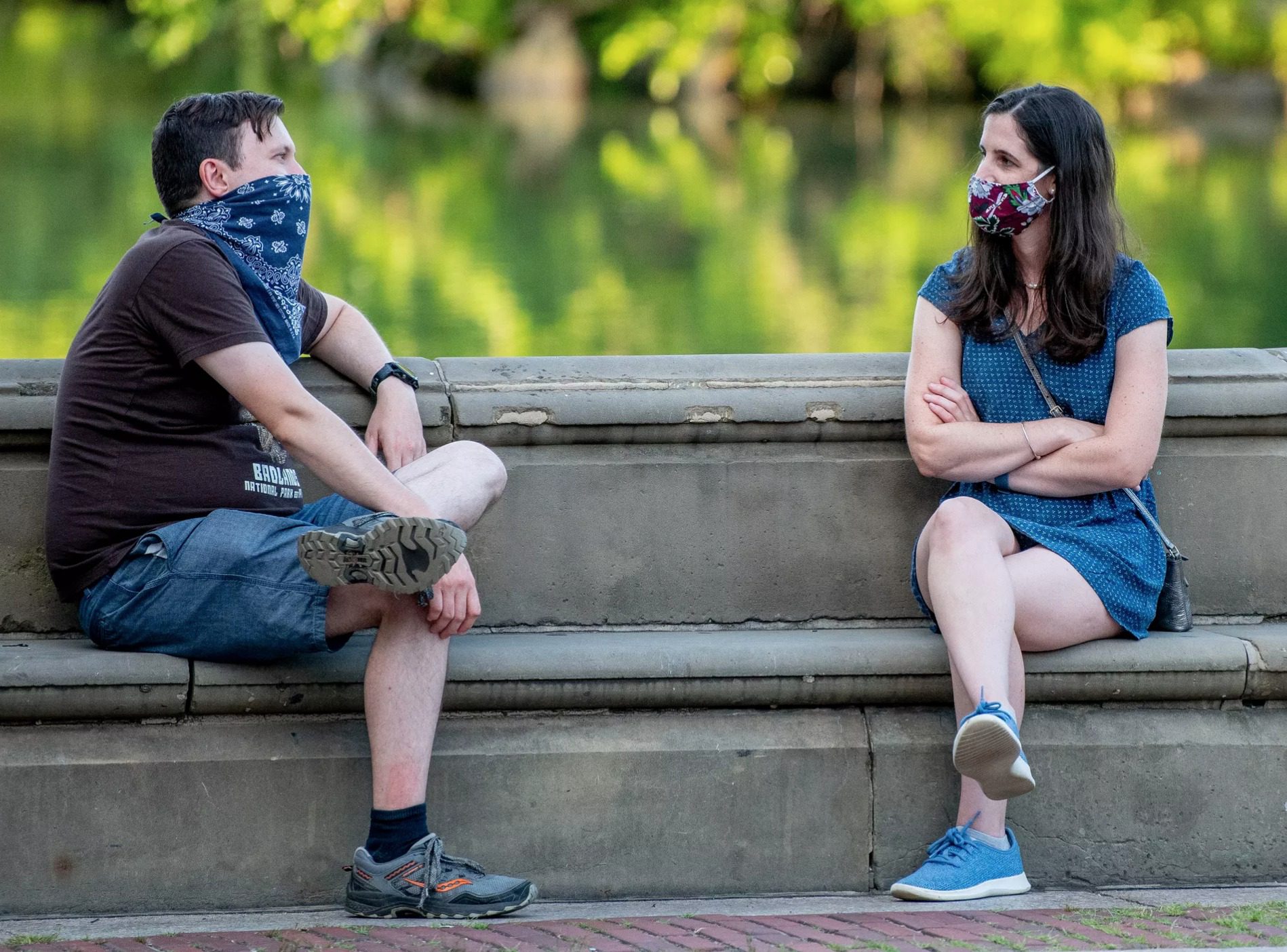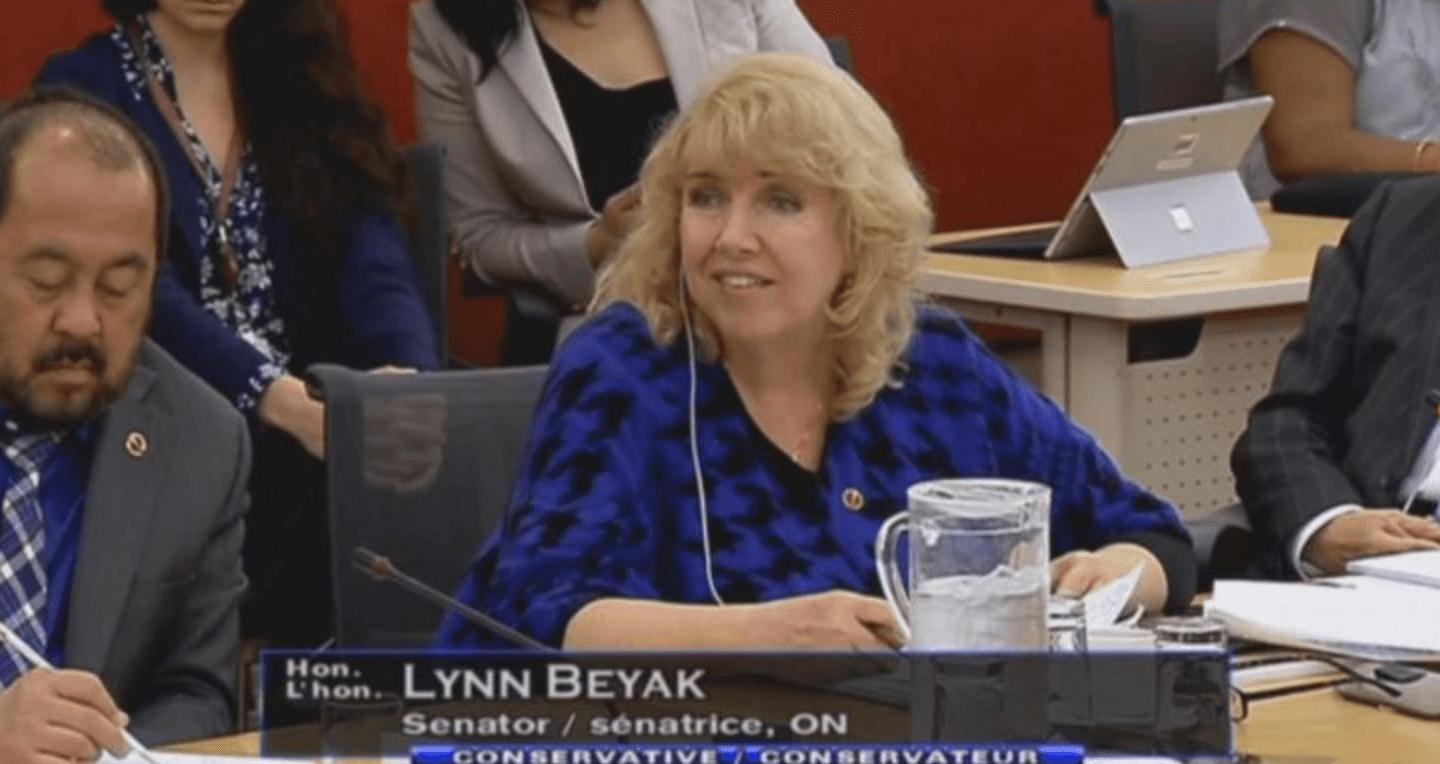This content is restricted to subscribers

The views, opinions and positions expressed by columnists and contributors are the author’s alone. They do not inherently or expressly reflect the views, opinions and/or positions of our publication.

This content is restricted to subscribers
The views, opinions and positions expressed by columnists and contributors are the author’s alone. They do not inherently or expressly reflect the views, opinions and/or positions of our publication.

The kid at the gas station eyed me warily.
True, I was there legitimately: to get gas, and to purchase a lottery ticket. I swear.
But the kid, running the Wellington gas station all on his own this night, looked uncertain. I stood there, grinning behind my mask. The gas station kid stood there, eyeing me with suspicion.
He suspected, I suspected, that I was there for a purpose other than gas and lottery tickets. Guilty. Busted.
In this, he was right. I didn't really need the gas, and I definitely didn't need a lottery ticket an extravagance someone once called, not inaccurately, a tax on daydreams.
I was there, mainly, to talk to the kid about anything and nothing. To have actual, face-to-face or mask-to-mask human interaction.
I was there for what a bemused therapist friend told me was "object hunger."
It's a Freudian thing. When we are little, the number one object is our mother. She provides sustenance and life.
Later on, other folks become the objects in our lives. From what I can glean, the psychoanalytical folks have spent a lot of time on this object stuff, writing books and whatnot.
Objects people, representations of people are pretty important to us, said my therapist friend. They help form our personalities. And the need for these objects is intense. We hunger for them.
Thus, said he, "object hunger." During a global pandemic that has confined us to our homes eating saltines and watching Netflix shows we don't really want to watch but will of course watch anyway we hunger not just for saltines, but for other folks. Objects.
In the little hamlet where I live in Prince Edward County, there ain't a lot of objects around to interact with at the best of times. During a frosty winter, mid-pandemic, there's even less.
Sure, there's Len, but he's busy this time of year, piloting around a snowplow affixed to the back of his tractor. There's Diane, across the way, but she (wisely) emerges only to fetch the mail.
Most days, there's Conrad, over the back fence. He's the object du jour. He's the object every single jour, pretty much.
Conrad is a genial and genuine legend around here. A playwright, a filmmaker, an artist, a sculptor, a defender of nature. Throughout the pandemic, we've met over the back fence at the recommended social-distancing distance, and then some to talk about everything and nothing. Mainly nothing.
I can't recall something about these nothing talks, but they are the highlight of my day, usually. I know that because I stay there talking to Conrad until my feet freeze up, and then other body parts as well.
We try to avoid talking about the ubiquitous pandemic statistics. The statistics have been manipulated too many times by the politicians and the nutbars (who are often interchangeable) and, besides, they're depressing.
So we talk about other stuff. I can't remember any of it, as I said. But that's not what matters. What matters is the human interaction part. And, every time, a miraculous thing happens. Every time.
It feels good.
Pre-apocalypse, you may have been like me. Hustle and bustle, hither and yon, never lingering too long to chat with a neighbour or an acquaintance. Things to do, places to go. All that.
Well, no longer. Doug Ford, in his ongoing role as Premier Dad, has encouraged us all to stay home. So most of us have.
But the human connection? The conversation not to be found on Zoom or Teams? The real, flesh and blood interaction stuff?
We need that. We need other people objects, as the psychoanalytical people clinically put it in our daily lives. We hunger for it. It keeps us human. It keeps us going.
The kid at the gas station regarded me warily, again. "Anything else, sir?"
"No," I said, cheerily. "See you tomorrow!"
Photo Credit: Vox
The views, opinions and positions expressed by columnists and contributors are the author’s alone. They do not inherently or expressly reflect the views, opinions and/or positions of our publication.

In the wake of Senator Lynn Beyak's resignation from the Senate before a motion to expel her could be fully debated some of the senators who were behind the move to oust her believe that more needs to be done in the Upper Chamber to combat any future incidents of a Beyak-like character being given licence to exhibit racism in similar ways. It's a thorny question, however, and one that doesn't have any easy answers, particularly because of the kinds of institutional protections that senators require in order to fulfil their roles. And while Beyak herself was something of an anomaly, we also have to remember that bad facts can make bad case law.
Part of what is at issue here are the rules in the Senate around their ability to discipline their members something that parliamentary privilege affords them, which is being challenged by Senator Mike Duffy in his legal challenge around his suspension without pay for the ways in which he was found to have abused his expense accounts. While they didn't (apparently) rise to the level of criminality, per the opinion of one Ontario Superior Court judge, Senate administration found multiple contraventions of policy and the Senate exercised its ability to discipline him in the way they saw fit. Of course, this was also done in a fairly problematic matter when it comes to giving him and senators Pamela Wallin and Patrick Brazeau the due process that they were owed, and this was in part why much more care was being taken in how Beyak was being dealt with.
In order for there to be clear lines of what does and does not contravene the code of conduct for senators, some better signposts need to be established, which is much of what this particular challenge by Beyak's critics will need to surmount. This includes the way in which allegations of racism are investigated, which is something that now-retired Senator Lillian Dyck told the Hill Times, and pointing out that the Senate Ethics Officer (SEO) is a white man, and he was asked to determine which remarks that Beyak posted on her website constituted as being racist. Dyck's assertion is that someone who is not Indigenous and has not experienced racism, and who "doesn't know what the triggers are," should not be able to make such determinations. And this is one of the first problems that I see.
There has been a lot of discussion around the role of the SEO in recent years, with calls for the ethics rules to be rewritten in the wake of other scandals of senators past, like that of Senator Don Meredith, given how long it took to investigate the issues of harassment in his office, after the RCMP closed their investigation into his alleged relationship with a teenager. Among those demands were for the SEO to be made a full-time position instead of his current per-diem existence. Never mind that there hasn't traditionally been enough work for him to have a full-time position most of his duties involve looking over senators' conflicts of interest in the board positions they are allowed to hold, and investments that they have, and much of that work is done upon appointment rather than being ongoing.
With this in mind, I have a great deal of trepidation when it comes to the suggestion that the SEO be turned into some kind of doyen of racism, to arbitrate what is and is not racism in the Senate, or if not the SEO, then some new position being created, ensuring that it is filled with an Indigenous person or other person of colour so that they can be sensitive to the "triggers" of what constitutes racism rather than it being blatantly obviously (as it was with Beyak's offences). Part of this hesitation is because I have a suspicion that it would quickly turn into a post that would be seeking to justify its existence by proactively calling things racist rather than to respond to and investigate complaints in a fair and impartial manner.
Another part of this unease is because we have senators like Mary Jane McCallum, who are calling out the "systemic racism" of the Senate, while offering dubious evidence, such as the fact that the hearings around Bill C-48 (which formalized the tanker ban on BC's northern coast) heard more witnesses from the oil and gas industry than they did from First Nations as though the quantity of witnesses is the measure of anything other than the negotiating power of those on the steering committee who draw up witness lists. McCallum also cites the legislation around cannabis legalization that allowed for random police checks which even white MPs and senators noted would likely see increased enforcement of non-white people but she neglects to mention that those (likely unconstitutional) bills were put forward by Jody Wilson-Raybould, who is Indigenous herself. Bad legislation can be an example of systemic racism the Senate passing it does not make the Senate systemically racist. And this is the kind of confusion and conflation of issues that raises red flags around this notion of a doyen of racism in the Senate's administration.
While there probably should be an examination of how the Senate's rules and code of conduct for senators can be improved, possibly including some very bright lines around racism and they would need to be bright lines in order to avoid witch hunts, or persecuting senators who espouse unpopular opinions rather than conduct that actually rises to a level that requires expulsion. Remember that an integral part of the Senate's institutional independence is that senators cannot be easily expelled, so that a prime minister who wants to get rid of his or her critics can't simply use the mechanism to have them ousted so that he or she can replace them with their own cronies. But rewriting the rules to match the facts of Beyak's case has the potential for overreach and unintended consequences, which senators need to be very wary of.
Photo Credit: CPAC
The views, opinions and positions expressed by columnists and contributors are the author’s alone. They do not inherently or expressly reflect the views, opinions and/or positions of our publication.